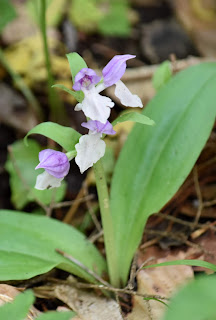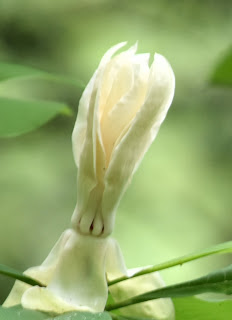I smiled when I finished mowing this morning, and not
just because I managed to finish before the rain started up again. When I mow, sometimes my lawn smiles back at me, but today it was entertaining me in other
ways.
The contours of our yard are uneven, to put it mildly.
There’s not a straight line or a square corner anywhere; I mow along slopes,
around obstacles, and as close as I can get to the cliff without falling over
the edge, and the result is always an uneven shape near the center of the back
yard. Often that shape resembles a smile, not a quiet grin but the uneven
open-mouthed clown smile that has come to be known, in our family, as The Mom
Face. (I was teaching my granddaughter to make The Mom Face last weekend. She’s
a natural, I tell you.)
Today, though, The Mom Face was nowhere to be seen. I’d
shifted my usual mowing pattern to avoid disturbing a box turtle that was
making its plodding way up the hill, so the unmown shape in the center of the
back yard eventually looked a little like the state of Ohio. I enjoyed trimming
the Lake Erie coastline, where I’ll spend most of next week. (And why bother
making the lawn look nice when I’m getting ready to leave town? I guess I want
the house to look inhabited even when I’m not here.)
A few more swipes around the edges and Ohio resembled a
puffy lozenge or a shield—or no, the boss in center of a shield, perhaps bearing
the insignia of the Royal Order of Merry Mowers. Just a few more turns around the yard and even that disappeared. Done! The lawn may not have smiled at me, but finishing the job certainly made me happy.





















































